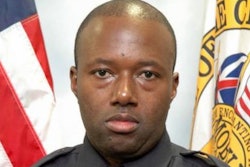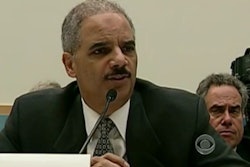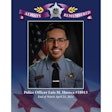"Kill me if you can, suckers." That was the taunting sign-off of a letter written to the Gastonia (N.C.) Gazette newspaper last month by convicted killer Danny Hembree Jr.
And after reading excerpts of that letter, I think most people in my home state would have been personally willing to give Mr. Hembree the needle.
Hembree's letter detailed why his life on death row at Raleigh's Central Prison has been more like a taxpayer-funded vacation than a prison sentence. Calling himself "a gentleman of leisure," Hembree told the people of Gastonia that he watches color TV, reads, takes naps, and eats three meals a day with no worries of seeing his sentence or himself executed.
"Is the public aware that the chances of my lawful murder taking place in the next 20 years if ever are very slim?" Hembree wrote.
Sadly that's true. North Carolina is one of several states where the death penalty cannot be currently carried out. The issue in North Carolina is a prohibition by the state's medical board against physicians participating in executions. State and federal law requires that a physician administer a lethal injection, and lethal injection is currently the only means of execution legally permitted in the Tarheel State. So there hasn't been an execution in the state since 2006. The result is that 165 capital inmates are living Hembree's life of "leisure" on the state's death row.
Hembree's Gastonia Gazette letter made national news. And it's triggered a lot of discussion nationwide among both opponents and proponents of the death penalty.
But missing in this debate as usual is any discussion of the victims. Danny Hembree Jr. was convicted of murdering a 17-year-old who was living a really hard life. Hembree told investigators that he bought sex with the teenager by giving her mother a crack rock. He said he later asphyxiated her with a plastic Walmart bag to prevent her mother from making the same deal with black men. Hembree is also charged with murdering two other young women under similar circumstances. For the record, his family insists he never murdered anyone, though he has confessed to all three killings.
Hembree is a perfect example of why we need capital punishment and why such executions need to be carried out in a timely and efficient manner. An apparent serial killer in the making, Hembree clearly represents a threat to society and society needs to protect itself from him.
It also needs protection from the rabid dogs who kill cops. I'm not going to name them and bring them even more "glory," but some of the 165 monsters on North Carolina's death row took some of the state's best from us.
In the last 15 years, North Carolina's death row inmates were convicted of murdering the following law enforcement officers:
- Officer James Mitchell Prince of the Boiling Springs Lakes Police Department. On Jan. 18, 2005, he was shot and killed with his own handgun when he tried to arrest a probation violator. He was 36, a father of two, and a six-year veteran of the force.
- Dep. Toney Clayton Summey of the Randolph County Sheriff's Department. Serving a warrant on a man in 2003, Summey was shot three times in the chest and killed with his own duty gun. Another deputy was wounded during the attack. Summey, 41, had been on the job four years; he was the father of two.
- Officer Roy Gene Turner Jr., of the Fayetteville Police Department. While on patrol in 2001, Turner was murdered in his squad car. He was 32, a five-year veteran of the Fayetteville PD, and left behind a son.
- Cpl. David Walter Hathcock of the Cumberland County Sheriff's Office. On Sept. 23, 1997, Hathcock was assisting in the stop of a stolen car and was killed by the occupants. He was 57, an 18-year veteran of the Cumberland County SO, and a father.
- Sgt. Lloyd Edward Lowry of the North Carolina Highway Patrol. Lowry was shot and killed at the same traffic stop where Hathcock was murdered. He was 47, a 22-year veteran of the Highway Patrol, and a father.
The men who murdered these officers are currently lounging around on the state's death row without any real fear of execution. Their cases won't move until the doctors cooperate.
But the only reason the state has to have physicians involved in executions is because it uses lethal injection as the execution method. Maybe it's time to take the doctors out of the mix and go back to "old sparky," or the gas chamber, or a short drop on a long rope. To delay justice any longer while these monsters live a life of "leisure" is cruel and unusual punishment of society and the loved ones of their victims.














